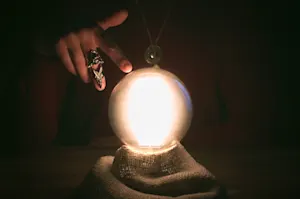What Makes This Word Tick
The word "melancholy" evokes a deep, pensive sadness that lingers like a fog on a cool autumn morning. It's not just a bad day or fleeting sadness—melancholy has an almost poetic weight. The word captures those moments when you find yourself staring out a window, lost in thought, feeling a bit wistful about times gone by or dreams unfulfilled.
If Melancholy Were a Person…
If melancholy were a person, they'd be the introverted artist type, always ready with a comforting cup of tea and a stack of classic novels. Perhaps they'd play a slow sonata on the piano, reflecting on the beauty and tragedy of life. They’d likely speak softly and have a talent for seeing beauty in the mundane.
How This Word Has Changed Over Time
Historically, "melancholy" was once considered a medical condition associated with an imbalance of the body's humors, believed to cause sadness. Over time, its usage shifted away from medical terminology to describe a more philosophical and emotional state of reflective sorrow or gentle longing, common in literature and the arts.
Old Sayings and Proverbs That Use Melancholy
While not found in many common proverbs, melancholy is often alluded to in sayings about the blues and reflection. Phrases like “music to soothe a melancholy heart” hint at the profound connection between melancholy and the arts, particularly music and poetry.
Surprising Facts About Melancholy
Did you know that during the Renaissance, melancholy was actually fashionable among artists and thinkers? It was seen as a mark of creative genius. Some of history's greatest figures, like Shakespeare, infused their work with melancholy themes, giving humanity some of its most profound and moving art.
Out and About With This Word
In the world of art galleries, melancholy might describe the mood evoked by certain paintings, especially those featuring somber colors or rainy landscapes. It's a favorite among romantic poets, who often wrap their tales of love in a shroud of melancholy yearning.
Pop Culture Moments Where Melancholy Was Used
Melancholy has made itself quite at home in pop culture, with musicians like The Smashing Pumpkins singing about "Infinite Sadness" and films like "Melancholia" exploring the beauty and heartbreak in the human experience. Its presence reminds us that sometimes a bit of sadness makes life more poignant.
The Word in Literature
You'll find "melancholy" woven through the works of classic authors like Edgar Allan Poe and Emily Dickinson, where it sets the tone for stories of unrequited love and the beauty in solitude. It seems tailor-made for the gothic and romantic literature that ruminates on life's deeper, sometimes darker questions.
Moments in History with Melancholy
In times like the Great Depression, the air was thick with melancholy as folks grappled with loss and uncertainty. It's also intertwined with the Romantic era, where artists expressed the depth and duality of human emotions—embracing both the sadness and sweetness of life.
This Word Around the World
In Japan, there's a concept called "mono no aware," akin to melancholy, appreciating the ephemeral beauty of things. Similarly, in Portuguese, "saudade" describes a deep emotional state of nostalgic longing. Each culture finds its unique way of expressing this universal feeling.
Where Does It Come From?
The word "melancholy" hails from Middle English, with roots in the Old French "melancolie," ultimately tracing back to Greek, where "melan" means black and "chole" refers to bile. This reflects the ancient belief about melancholy being tied to an excess of black bile.
How People Misuse This Word
People might misuse "melancholy" by casually interchanging it with general sadness, whereas true melancholy is more contemplative and nuanced. It's not simply feeling down—it's a reflective, almost artistic state of being that deserves a bit more respect.
Words It’s Often Confused With
Sadness: Melancholy is more reflective, while sadness is straightforward.
Depression: Depression is a clinical condition, whereas melancholy is an emotional state.
Nostalgia: Nostalgia is more about longing for the past, while melancholy can focus on the present.
Additional Synonyms and Antonyms
Dwell a little on synonyms like "wistfulness," "pensive," and "gloom." For antonyms, consider "joy," "happiness," and "contentment," which reflect the brighter side of the emotional spectrum.
Want to Try It Out in a Sentence?
"On a rainy afternoon, staring out at the empty streets, I felt a pleasant melancholy as I reminisced about the bustling days of summer."
















